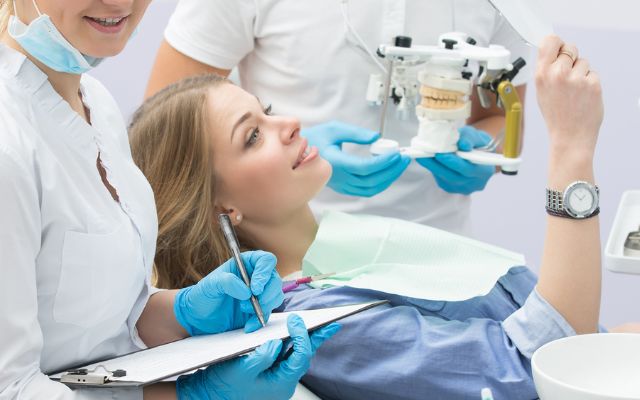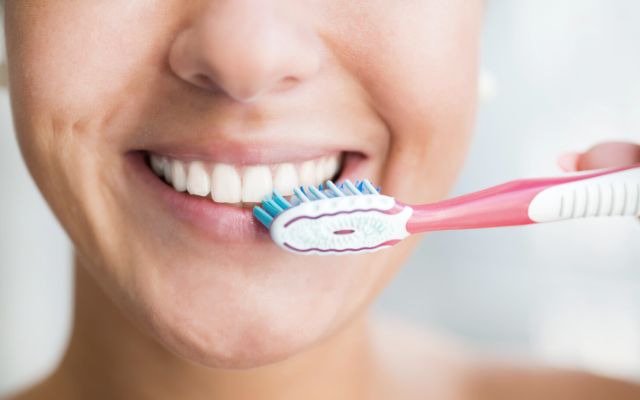Preventive Dentistry
Preventive dentistry is essential for maintaining your dental health. Are you experiencing tooth pain? You’ve found the ideal site; this article’s remedies for eradicating and avoiding dental issues are waiting for you.
For more information on what you can do to maintain the health of your teeth, continue reading.


What is Preventive Dentistry?
The method of taking care of your teeth to maintain their health is known as preventive dentistry. This reduces the risk of developing cavities, gum disease, enamel wear, and other conditions.
Dental preventive care should not be disregarded. You can maintain your general health and wellness as you age by seeing the dentist often, preventing oral health issues, and avoiding major dental illnesses, all of which may save you time, money, and possible suffering.
Preventative Dentistry Categories
Preventive dentistry includes several different techniques, including regular cleanings and brushing. The Australian Dental Association (ADA) advises going to the dentist on a regular basis at intervals decided by a dentist in order to preserve excellent oral health. These procedures are made to guarantee that teeth are healthy, sturdy, and white. Early instruction in good dental hygiene for children is recommended.
The following are examples of preventive dental services:
Damage From Ignorance Of Preventative Dentistry
Preventing damage to your teeth and gums is key to having good oral health and that’s why preventive dentistry is so important. Sadly, many folks overlook the significance of preventive dental care, which can lead to major problems in the long run. Some common outcomes of ignoring preventive dentistry include:
- Cavities and Tooth Decay: Tooth decay, also known as cavities or caries, is caused by a variety of causes, including germs in your mouth, frequent eating, drinking sugary drinks, and failing to properly clean your teeth.
- Gum Disease: Gum disease, also known as periodontitis, starts with bacterial growth in the mouth. Neglecting to brush, floss, and rinse with mouthwash can result in plaque formation, releasing acids that damage teeth and lead to decay. If not treated, periodontitis can cause tissue breakdown and tooth loss.
- Bad Breath: Poor oral hygiene can result in bad breath, which can be embarrassing and affect a person’s self-confidence.
- Increased Risk of Heart Disease: Research has shown a link between gum disease and heart disease, meaning that neglecting preventive dentistry could increase a person’s risk of heart problems.
- Higher Dental Costs: Ignoring preventive dentistry can lead to the need for more extensive and expensive dental procedures in the future.
It’s crucial to put preventive dentistry at the top of your priority list to maintain good oral health and prevent damage to your teeth and gums. Regular check-ups, cleanings, and practicing good oral hygiene can go a long way in protecting your oral health and avoiding damage from neglecting preventive dentistry.
How Can You Protect Your Teeth At Home?
In order to preserve healthy teeth and gums between typical dental appointments, preventative dentistry relies on maintaining appropriate oral hygiene practices at home. Follow the advice listed below to safeguard your teeth at home:
But always keep in mind that your dentist is the best source of knowledge.


Daily Tooth Brushing
One of the straightforward activities that you may perform daily at home and that still works to protect your teeth is brushing your teeth. Brushing your teeth helps remove food and plaque, which is a sticky white film that builds on your teeth and includes bacteria. The Australian Dental Association suggests cleaning your teeth twice a day for 2 minutes each time using fluoride toothpaste.
You might also think about your nutrition while deciding when to wash your teeth. Acids produced by the bacteria in plaque after consuming a meal or snack that contains sugar destroy tooth enamel. Avoid cleaning your teeth soon away if you’ve just consumed something acidic. Because of these acids, tooth enamel becomes more brittle and might be removed by brushing too quickly.
Please remember to tongue-brush. This will aid in clearing out oral bacteria and aid in freshening your breath.
Advice for you: Consider purchasing an electric or battery-operated toothbrush if you have arthritis or have trouble gripping a toothbrush. These have been demonstrated to remove plaque more effectively than traditional toothbrushes.
Remember To Floss Every Day
It’s also advised to floss every day. Flossing on a regular basis helps protect teeth from cavities and decay by eliminating food particles before bacteria and acid can attack. By getting rid of possible irritants, flossing lowers your chance of getting gum disease.
A suggestion for you: It truly depends on personal choice at when the time of day you floss. In contrast to others, some patients prefer to floss at night. Your teeth will reward you as long as you floss often.
Consume A Well-Balanced Diet
A healthy diet gives your teeth the nutrition they require, which helps to protect them. All food categories should be consumed in order to ensure healthy teeth and gums.
Recommendation for you: Fresh fruits and vegetables are some of the greatest meals for healthy teeth because of their high nutritional content and additional benefits for cleaning teeth. Additionally, foods high in calcium, such as low-fat or fat-free milk, yogurt, and cheese, as well as fortified soy beverages, tofu, canned salmon, almonds, and dark-green leafy vegetables, support healthy teeth and bones.
Consume less sugar overall, even in simple carbs like white bread, and stay hydrated all day.
Consult Your Dentist
At least once a year, you should have a checkup with your dentist to look for any dental or gum issues. Exams and cleanings of the mouth enable dentists to spot issues and address them immediately.
What Advantages Do Preventative Dental Care Offer?
Your chance of developing cavities, gingivitis, periodontitis, and other dental issues can be significantly decreased with excellent oral care. This in turn can lower your chance of developing secondary issues brought on by poor dental health. Poor oral health has been related to a number of health issues, including:
- Encourages proper dental hygiene behaviors such as brushing and flossing at least twice a day.
- Minimizes oral issues brought on by some long-term medical disorders. Dental and oral health can be impacted by various diseases and conditions, including diabetes, osteoporosis, certain malignancies, and eating disorders. Preventive dental care should be a regular element of overall health for those with chronic illnesses.
- Dental issues that are detected early may need less work and money to correct.
- It enables your dentist to do a thorough examination of your mouth, jaw, neck, etc. to find any associated issues.
- Contact us for more
Who Gains from Preventive Dentistry?
Preventive dentistry is advantageous to everyone.
- Children especially gain because it enables the robust and healthy emergence of their adult teeth when they are still in the process of development. Your children’s teeth can be protected against decay using dental sealants and topical fluoride treatments.
- Adults who are becoming older might benefit from preventative dentistry since it helps them maintain their natural teeth.
Preventive Treatments With Dentists


Preventive treatments in dental clinics help to nip oral health problems in the bud. Common treatments offered by dental clinics include:
- Teeth Cleaning: Regular teeth cleanings where a dentist or dental hygienist removes plaque, tartar, and surface stains from the teeth, preventing gum disease and tooth decay.
- Fluoride Treatment: Fluoride strengthens the enamel of teeth and helps prevent cavities. Fluoride treatments come in gel, foam, or varnish form.
- Dental Sealants: Thin plastic coatings applied to the surface of molars to prevent plaque and tartar buildup.
- Oral Hygiene Instruction: Dental clinics offer instructions to help patients maintain good oral health between appointments, including tips on proper brushing, flossing, and rinsing techniques.
Contact Preventative Dentistry In Bassendean, Perth
Sometimes dental health-related hazards are unavoidable, even with the above-mentioned oral health measures. To acquire the most precise information about your dental health, we nevertheless advise that you make an appointment with your dentist.
“Our team of experienced dentists and staff is dedicated to ensuring that every patient receives the highest quality of care, from start to finish.” Dr. Ylan Pham
FAQs
How Much Does Preventative Dental Care Cost?
If you are covered by insurance, preventive dentistry could be entirely covered by the dental insurance plan you select. Regular X-rays, tooth cleaning, and oral exams are all part of preventive dental care. There are frequent restrictions on the number of treatments each year. It’s crucial that you comprehend the specifics of your insurance coverage since if you go over certain limitations, you can have to pay out of pocket gap.
Is Preventative Dental Treatment Covered By My Dental Insurance?
Most dental insurance policies offer some level of coverage for preventive dental treatment. To discover more about the services that are covered by your plan, you should consult your dental practitioner.
- Preventive services such as the ones listed below are frequently covered.
- Cleanings of the teeth and oral examinations (checkups): Usually twice a year; discuss with your dentist the best frequency for your dental health requirements.
- Fluoride treatments: To find out whether services are covered by your plan, review the usual conditions that apply to these treatments. Some plans incorporate this service as a child-specific preventive measure.
- Dental sealants: Verify the services your plan covers because they are sometimes plan-dependent.
- X-rays per year: These could also fall under diagnostic services, depending on your plan.
Why Is Preventative Dental Care Important?
In order to ensure that children have healthy teeth and gums as they grow older, preventive dentistry is especially crucial for young patients. Oral checkups and expert cleanings from a young age, before bacteria have a chance to accumulate, can assure lifetime dental health.
What's The Most Important Goal Of Preventative Dentistry?
The ultimate goal of preventative dentistry is for patients to preserve their natural teeth in the best possible condition for as long as feasible. To maintain its excellent state, anything significant in our life needs to be well-cared-for.
What Are The Components Of Preventive Dentistry?
Preventive dentistry consists of oral health screenings, analysis, testing, diagnostics, and treatment (if necessary) with the basic goal of preventing more serious diseases from arising.
Useful Dental Links
The following links provide some good general information on dentistry.
- ACADEMY OF GENERAL DENTISTRY: http://www.knowyourteeth.com/
- AUSTRALIAN DENTAL ASSOCIATION: http://www.ada.org.au/
- FLOSS.COM: http://www.floss.com/
ORAL HEALTH CARE PRODUCT
- COLGATE: http://www.colgate.com/
- CREST: http://www.crest.com/
- SONICARE: http://www.sonicare.com





